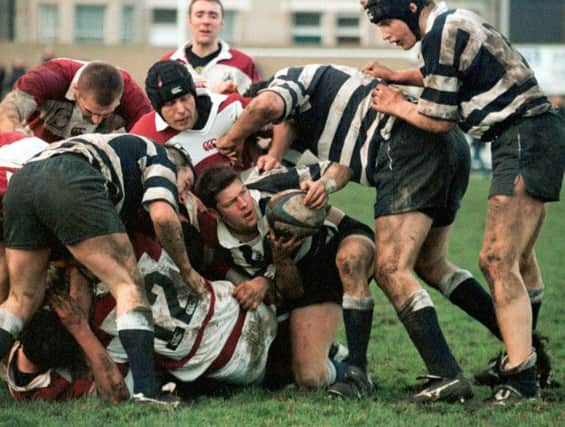U-18s ‘should be banned’ from front row rugby scrums


Researchers at the University of Edinburgh said putting teenagers in the front of scrums in senior matches was unsafe if they did not have enough neck strength to withstand the forces involved when sides push against one another.
The findings were welcomed by Scottish Rugby, which said it had been implementing the practice during the past season.
Advertisement
Hide AdAdvertisement
Hide AdThe researchers found that the majority of youngsters did not have the same neck strength as those over 18, despite being able to match them in other areas of performance.
They proposed that youth players undergo tests to demonstrate they have the same neck strength as their adult counterparts before being approved to play in the front row of the scrum in adult rugby.
The study said scrums were responsible for a significant proportion of spinal injuries.
The researchers, writing in the British Medical Journal, tested the physical strength of adult players from amateur leagues and high-performance under-18 front-row players, looking at the players’ neck strength and fatigue endurance. They found under-18 players had reduced strength and fatigue endurance, which put them at a significant disadvantage to older players.
The researchers said that despite looking as physically strong and being as technically able as adult players, this was often not the case.
Dr David Hamilton, research fellow at Edinburgh University’s Department of Trauma and Orthopaedics, said: “In the test group of high-performance under-18 players, only two out of 30 players recorded the average neck strength of the adult group.
“We know that the scrum is responsible for some of the nasty neck injuries, and we also know from previous research that the neck strength in schoolboys varies massively.”
The researchers, working with Scottish Rugby medical specialists, said objective measures of the players’ neck strength should be a key part of the selection process for those out to play in the front row in senior rugby.
Advertisement
Hide AdAdvertisement
Hide AdThe study, part of an initiative by Scottish Rugby with the Scottish Committee for Orthopaedics and Trauma (Scot) group, has helped change the way youth rugby is played in Scotland.
Researchers say it has led to falls in rates of serious injury.
Hamish Simpson, professor of orthopaedic surgery at Edinburgh University and a consultant orthopaedic surgeon with NHS Lothian, said: “Our results showed that although under-18 players were as strong as the adults in general, they were unable to generate the same neck muscle force as adult players.
“It is likely that weak necks are a risk factor for the scrum collapsing – an event associated with serious neck injury risk.
“To ensure the safety of all six front-row players, it is essential that they are all strong enough to compete safely.”
Dr James Robson, Scottish Rugby’s chief medical officer and doctor on the past six British and Irish Lions tours, said: “This study suggests that youngsters can achieve peripheral strength.
“However, the key area for us is the strength of their neck and it would appear it’s very difficult to attain ‘adult-type strength’ in this particular area.
“This research is helping to underpin our safety policies. It validates our stance on where and when we allow under-18s to play in senior rugby.”
SEE ALSO: